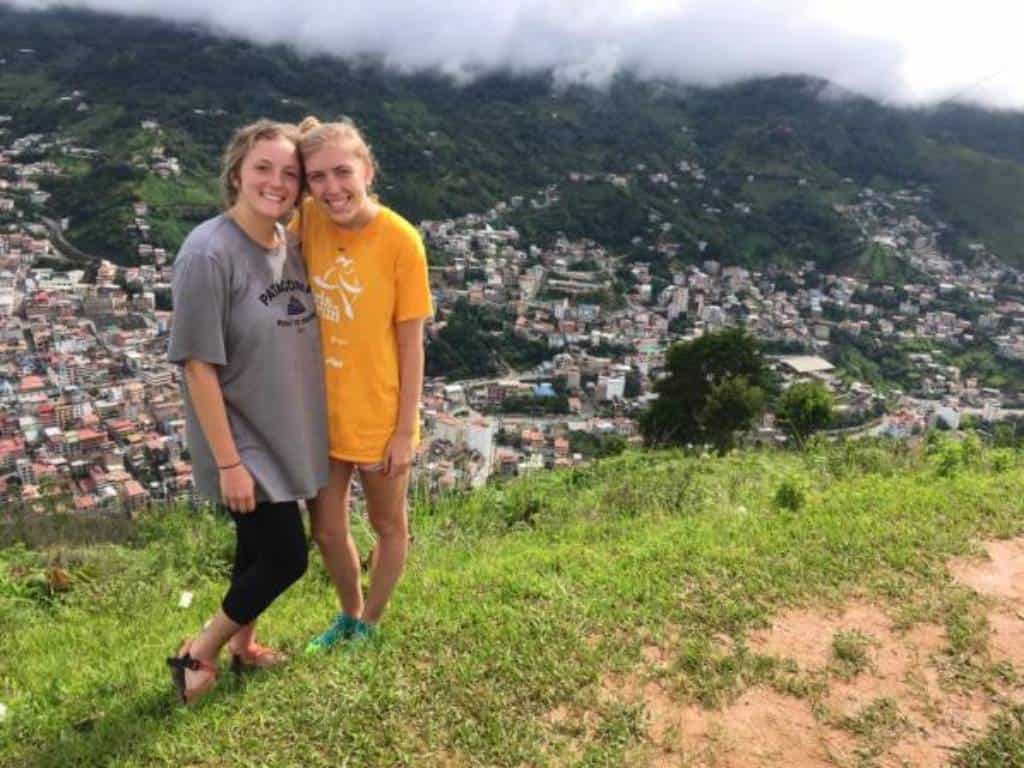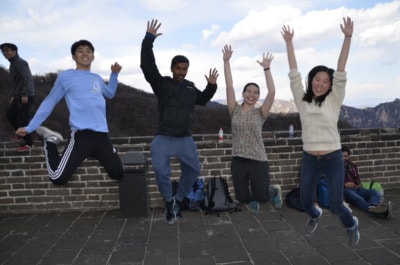

My grandparents lived in Lenoir. I visited often and knew the town backward and forward…from the post office to Blackwelder Hospital to the Methodist church to Mulberry florist to the Pic ‘N Pay. It was 18 miles to Blowing Rock and another eight miles to Appalachian State University.
My Granddad was full of stories which he would tell me when we would go driving. He told me a few about a young lawyer in town named Brad Wilson. I remembered them.
Brad Wilson is on our Board of Directors. Blue Cross and Blue Shield of North Carolina supports the work of EdNC and our Reach NC Voices initiative. He and his wife, Carole, also support our work.
Tonight, Brad will be honored and celebrated at the 2017 Champions for Children Gala hosted by the North Carolina Foundation for Public School Children.
According to the press release, “The N.C. Foundation for Public School Children is a nonprofit initiated by the North Carolina Association of Educators whose mission is to enhance the effectiveness of North Carolina’s public school system. The Foundation accomplishes its mission by providing items that are critical to the success of students in a classroom such as eyeglasses, school supplies, and clothing. It also administers Teacher Cadet, the state’s largest teacher recruitment program, and offers project grants to low-wealth school districts. Over the past 20 years, the Foundation has provided more than $2 million in student support and has helped more than 25,000 public school students and educators.” Other honorees tonight include Governor Roy Cooper, Communities in School of North Carolina, the Holt Brothers, and Bishop Hope Morgan Ward.
If you know Brad, then it will come as no surprise that he would like the focus of tonight — and this piece — to be on our students and their stories.
The Wilson Scholars Program
Are you a creative and independent thinker?
Do you want to make a difference?
Is global learning important to you?
Established in 2013 by Brad and Carole Wilson, “The Wilson Scholars Program, Appalachian’s premier scholarship program, embodies the Appalachian spirit: a rich blend of academic excellence, leadership, and service. This scholarship program attracts the best of the best, instills in them a commitment to change the world, and provides the resources for students to think creatively, strategically, and collaboratively.”
The Wilsons graduated from Appalachian in 1975, and “they aspire to support student-leaders steeped in the Appalachian experience to make a difference in the world.”
Here is a glimpse into one experience of a Wilson Scholar.
Intent vs. Impact


Meet Emma Labovitz, a student in the first cohort of Wilson Scholars in 2014. Emma is a graduate of Salisbury High School and now majors in Global Studies and Political Science at Appalachian. This is a story she wrote about her experience in Ecuador:
As I headed back to Ecuador, I felt overcome by all the inevitable worries and hesitations that come with international travel. Was I personally prepared enough and, more importantly, had I properly prepared the group I was taking? How would this experience be different from the last time, and what do I do if it’s worse? Do I have my passport? To ease any anxiety about these questions we can skip to the end of the program, and I’ll go ahead and tell you it was incredibly successful. Okay, now back to the beginning.
To lead an Alternative Service Experience (ASE), one must go through a multi-faceted leadership training. This training does several things: it educates the participants on a variety of social justice issues, teaches us how to lead successful and meaningful reflections, and acts as guidance as we plan an entire program for participating students. Most notably, these training classes substantially impacted the way I viewed service and a variety of social justice issues.
I can remember reading the article “To Hell with Good Intentions” for homework. Following this reading, in true ASE fashion, we discussed and reflected on the article. There were varying opinions on the dialogue, but the overall consensus was that our intentions, while pure, did not mask the ugly fact that our acts of service can have a negative impact on the very communities we hope to help.
Prior to this class, I had heard of the topic of the article, the White Savior Complex, but I had never discussed it with such intensity. I left this conversation feeling defeated. I remember raising the questions, so what do we do? How do we help when it feels like our help can only hurt?
The ASE class and the time I spent on my program provided clarity to this question. I realized that while intentions have some validity, the goodwill of intentions does not mitigate the impact it has. But these intentions do provide a basis for beginning the process of helping. Intentions propel participants forward to create positive change, and with the proper education and right intentions it is possible to work with a community and create a positive impact.
As a global studies major I intend to work abroad or with people of different cultures, and ASE has shown me ways to do so in a non-harmful way. The topics of “White Savior Complex” and “Intent versus Impact” are discussed in many of my global studies classes as my peers and I seek to help the global community. While ASE does not provide answers to every question, it creates a space for dialogue, understanding, and growth which can then be implemented into my classes. ASE has served to further confirm my decision to work with the international community. I feel empowered to create effective change, and to do so through a noninvasive method. I am excited for the base ASE has given me as I head into the next phase of my education and into my career.
As I reflect back on my involvement with ASE, I am incredibly thankful for the lessons, love, and friendships I have acquired during my time. From Emily, my co-leader, who has pushed me intellectually and provided me with an incredible friendship, to the growth I have received from our classes, I am incredibly thankful for all the benefits ASE has afforded me. As I transition from college to whatever comes next, the system of thinking, learning, and exploring that I learned from ASE will help with my transition to becoming an active citizen.
Active Citizens
“Anyone who has caught the Appalachian spirit knows that we can’t truly do well unless we’re also going to do good. Service runs through our veins.”
– Brad Wilson ’75
“Making a difference is the only thing that matters.”
– Carole Wilson ’75
Each year, the Wilsons call the students chosen to be a Wilson Scholar and give them the news personally. Brad says, “To experience the great variety of reactions from these fabulous young people is one of the most rewarding opportunities Carole and I have ever experienced.”
Here is more information about the scholarship, you can meet the rest of the Scholars, and learn more about how to apply. The Wilsons would love for as many young people to know about this opportunity as possible. So would we.
EdNC extends our thanks to Brad and Carole Wilson for reminding us tonight and everyday through the work of the Wilson Scholars why it is important to make a difference. And thank you for breathing life into our work at EdNC.


